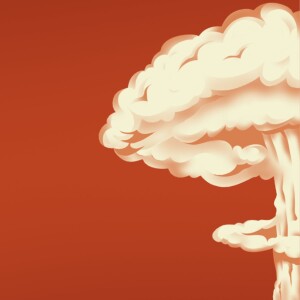
Friday Dec 15, 2023
The Unveiling of Humanity: John Hersey’s Portraits of Resilience
Quotes of Hiroshima book
- "I can never forget what I saw that day." - Setsuko Thurlow, Hiroshima survivor and Nobel Peace Prize laureate
- "The atomic bomb made the prospect of future war unendurable. It has led us up those last few steps to the mountain pass; and beyond there is different country." - J. Robert Oppenheimer, physicist and key figure in the Manhattan Project
- "Hiroshima is not merely a ruined city. It is a place where man can comprehend in its entirety the tragedy and horror that war might bring upon mankind." - Tatsuo Yamamoto, Hiroshima Survivor
- "Hiroshima faces us with the appalling dilemmas which modern nations have not yet solved." - John Hersey, author of "Hiroshima"
- "Nor does the human spirit move without great difficulty against all the apathy of conformist thought within one's own bosom and in the surrounding world. - Hideko Tamura, Hiroshima survivor
What can we learn from Hiroshima book?
The answer to this question will vary depending on the specific book being referred to. However, if we assume that the book in question is John Hersey's "Hiroshima," which is a non-fiction account of the experiences of six survivors of the atomic bombing of Hiroshima in 1945, then there are several significant lessons that can be learned:
- The devastating impact of nuclear warfare: Hersey's book vividly portrays the immense destruction caused by the atomic bomb. Readers can learn about the immediate and long-term effects of nuclear weapons on individuals, communities, and the environment.
- Human resilience: Despite the immense suffering and loss, the survivors displayed remarkable strength and resilience. The book showcases the human capacity to survive and rebuild in the face of unimaginable tragedy.
- The importance of empathy and compassion: "Hiroshima" highlights the importance of understanding and empathizing with the experiences of others. The stories of the survivors help readers to understand the human toll of warfare and encourage compassion towards victims of violence.
- The potential consequences of war: By detailing the personal stories and aftermath of the atomic bombing, "Hiroshima" underscores the catastrophic consequences of war. It serves as a cautionary tale about the destructive power of weapons and the need to seek peaceful resolutions to conflicts.
- Historical context and reflection: The book provides historical context and enables readers to reflect on the events and decisions surrounding the atomic bombings of Hiroshima and Nagasaki. It prompts critical thinking about the implications of those decisions and encourages discussions about the morality of war.
Overall, reading "Hiroshima" can provide valuable insights into the human experience during war, the impact of nuclear weapons, and the importance of empathy and peace.
Hiroshima book summary
One of the most well-known events in history is the bombing of Hiroshima during World War II. The book "Hiroshima" by John Hersey dives deep into the lives of six survivors of the atomic bomb, showcasing their experiences before, during, and after the devastating event.
In this non-fiction account, Hersey shares the stories of a variety of individuals, from a widow struggling to find her children in the midst of the chaos, to a German priest who aids survivors amidst the destruction. Each person's narrative is presented in chronological order, which creates a gripping account of the horrific event and its aftermath.
The book begins by introducing the six main characters and gives readers a glimpse into their daily lives in Hiroshima before the bomb was dropped. Once the bomb is unleashed, the narrative shifts to the harrowing moments during and after the explosion. Hersey portrays the immense physical and emotional suffering endured by the survivors, showing the extensive damage to their bodies as well as their deep psychological scars.
Throughout the book, Hersey emphasizes the human capacity for resilience and the enduring human spirit. He showcases how the survivors come together to rebuild their lives, often facing discrimination and stigmatization due to radiation sickness. The book also delves into the ethical and moral implications of using nuclear weapons, offering a critical perspective on the devastating consequences of such actions.
Overall, "Hiroshima" provides a powerful and deeply moving account of the destructive power of war and the resilience of the human spirit. It sheds light on the catastrophic impact of the atomic bomb on Hiroshima's inhabitants, leaving readers with a sense of the immense loss and tragedy that occurred on that fateful day in August 1945.
No comments yet. Be the first to say something!